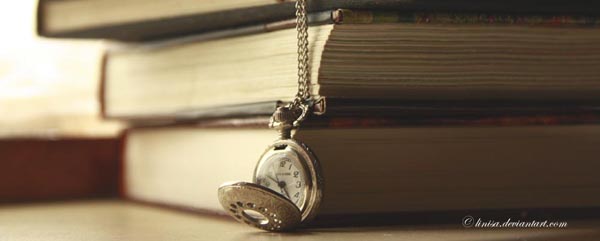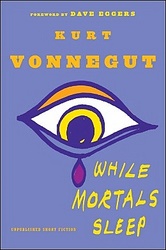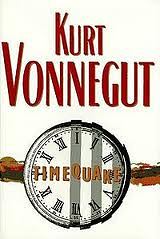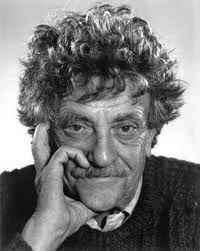
photo by Linda
While Mortals Sleep
by Pauline Masurel
 In his 1997 book Timequake, Kurt Vonnegut wrote, ‘a plausible mission of artists is to make people appreciate being alive at least a little bit.’ Vonnegut was the Honorary President of the American Humanist Association, and he once wrote, ‘When I myself am dead, God forbid, I hope some wag will say about me “He’s up in Heaven now.”‘ This mixture of modest wisdom and wry humor is what always attracted me to his writing. When I began to read this second posthumously published volume of his early stories, I was hoping to hear the same no-nonsense, conversational voice that spoke to me in Cat’s Cradle and Jailbird.
In his 1997 book Timequake, Kurt Vonnegut wrote, ‘a plausible mission of artists is to make people appreciate being alive at least a little bit.’ Vonnegut was the Honorary President of the American Humanist Association, and he once wrote, ‘When I myself am dead, God forbid, I hope some wag will say about me “He’s up in Heaven now.”‘ This mixture of modest wisdom and wry humor is what always attracted me to his writing. When I began to read this second posthumously published volume of his early stories, I was hoping to hear the same no-nonsense, conversational voice that spoke to me in Cat’s Cradle and Jailbird.
What I found instead might be best described as a series of cautionary tales. These sixteen stories include booming businesses, glamorous celebrities, generous inheritances, empire builders, successful salesmen, wealthy widows, characters called George and Nancy, and a frustrated opera singer who makes a fortune selling donuts.
In ‘The Humbugs’, two artists discover that there’s little difference between being a wealthy hack or a critically acclaimed pauper. Each feels as fraudulent as the other because neither feels he has fulfilled his potential. ‘The Epizootic’ poses a question that seems chillingly relevant today:
I used to wonder what was going to become of all the Americans like him, a bright and shiny new race that believed that life was a matter of making one’s family richer and richer and richer, or it wasn’t life. I often wondered what would become of them, if bad times ever came again, if the bright and shiny men suddenly discovered their net worths going down.
This story suggests that those who have the most will be the ones who lose the most, but that their money isn’t actually the most important thing at stake. Both stories exhibit a generous skepticism about the wisdom of pursuing riches as a goal.
Several stories deal with how easily love can become misdirected. In ‘Jenny’, a man perfects, and then falls for, a robotic refrigerator manufactured in the image of his ex-wife. In ‘Hundred Dollar Kisses’, when a man lusts after a dreadful woman whose photo he’s seen in all the magazines, we’re told, ‘Everybody pays attention to pictures of things. Nobody pays attention to things themselves.’ This sort of observation wouldn’t seem out of place in one of Vonnegut’s novels.
Dave Eggers, in the foreword, highlights Vonnegut’s moral voice and refers to the book as a collection of ‘mousetrap stories’. And they do click satisfyingly shut. They’re not trite, exactly, but they do feature rounded plots that finish on neat endings. Although at times I would prefer the messier tell-don’t-show of Vonnegut preaching directly at me rather than these carefully constructed parables, the endings of these stories have value judgments implicit in their conclusions. Vonnegut’s later, more knowing, voice is still intrinsic to the plots and their resolutions even if not so evident in the narrator’s tone. Perhaps these stories add more to the aliveness of his life’s work by not simply being ‘more of the same.’ Perhaps they offer insight into the nursery conditions from which his later writing matured.
 In Timequake, Vonnegut wrote, ‘We are here on Earth to fart around. Don’t let anybody tell you any different!’ This view of life pulses through two characters in this collection. Earl, in ‘With His Hand on the Throttle’, constantly ignores his wife in order to play with model trains in their basement. And Ben, in ‘Money Talks’, knows that fishing for clams can be as fine as any fortune. These stories are not about the office or the salesroom or the bank balance, but instead about the value of the life firmly rooted in the farting around.
In Timequake, Vonnegut wrote, ‘We are here on Earth to fart around. Don’t let anybody tell you any different!’ This view of life pulses through two characters in this collection. Earl, in ‘With His Hand on the Throttle’, constantly ignores his wife in order to play with model trains in their basement. And Ben, in ‘Money Talks’, knows that fishing for clams can be as fine as any fortune. These stories are not about the office or the salesroom or the bank balance, but instead about the value of the life firmly rooted in the farting around.
The stories in While Mortals Sleep may have been written in post-World-War-II-America, but they have much to say to today’s not-so-bright-and-shiny world. Will a die-hard fan be disappointed? Will a new reader wonder what the fuss is about? Difficult to know. However, Kurt Vonnegut is up in Heaven now with his stories living on, and, more than a little bit, they make me appreciate being alive.
***
This review was first published in Contrary Magazine and is republished by kind permission.


